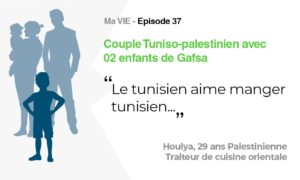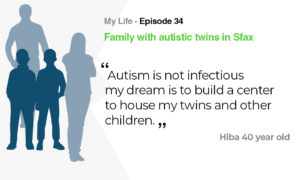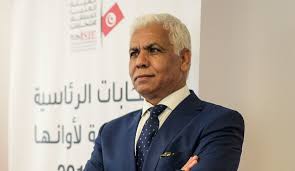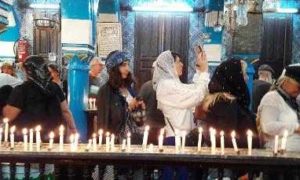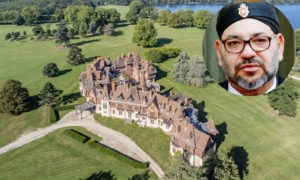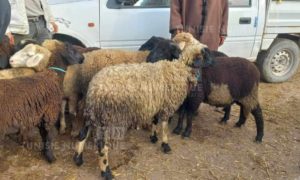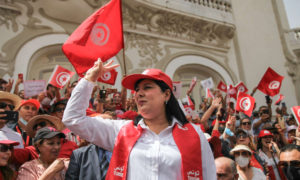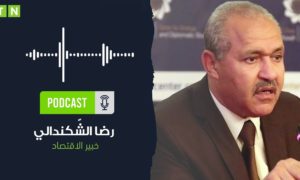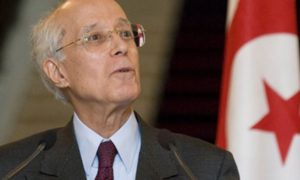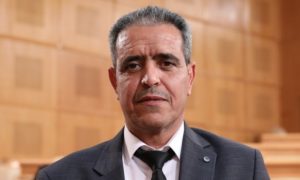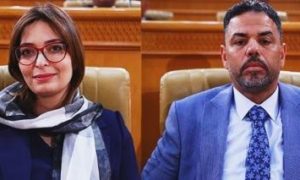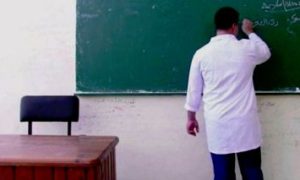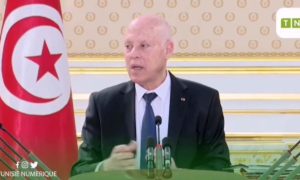“These Tunisians come from various social classes, and different ages and live in both posh and popular neighbourhoods. They willingly agreed to answer in a spontaneous and anonymous manner to the questions of Tunisie Numérique. The stories have been transcribed as they are”.
Khamsa is a widow. She has 3 children from her late husband, Nacer passed away 2 years ago aged 54.
Khamsa confesses to us: “I have 3 children: 02 girls aged 15 and 10 and a 6-year-old boy. I also have under my care 3 sisters, one with a motor disability. “
Khamsa continues: “I pick up plastic bottles. This is my sole job. I wake up at dawn, I take my large bag and my cart and I crisscross the neighbourhoods of the city. At the end of the day, I go to the collection centre to trade what I picked up. I am given 7 dinars per day ”.
Khamsa tells us that she arranged with houses from her ‘‘ area’’ so that the bottles and other plastic containers are left aside.
Khamsa adds: “My work is extremely difficult. I have to get up every day to go to work without knowing if I will amass enough bottles to be able to sell them and support my family. If I don’t take other pickers will be ahead of me. ”
Khamsa wants to add: “It is very hard to compete with motorized men who have much easier to move and pick up more quantity in a short time. I just have my feet and my cart. It’s merciless and it’s every man for himself. I understood fast enough that I could not compete with them so I got along with families who were kind enough to reserve their empty plastic bottles Yarham Waldihom –يرحم والديهم “.
Khamsa “children
Khamsa has 2 daughters and a boy. The oldest girl is in the first year of secondary while the youngest is in the fifth year. The boy is 6 years old and has just entered the same school as his younger sister.
Khamsa tells us with an ironic tone: “My three children go to public school in Ezzouhour. Public, you can doubt it! Hamdoullah teaching is free that is what they say but in fact, it is very expensive مما في الحقة غالي غالي ياسر “.
Khamsa tells us: “Books and school supplies are given by donors who know me or charitable associations that distribute social assistance during the beginning of the school year”.
Khamsa proudly tells us about her children: “My children are the apple of my eyes -thus -ممو عينيا. They go to public schools and learn alone without private lessons. They assist each other. My big daughter helps the smallest and the youngest helps the youngest. My 2 daughters have good results. They know that to succeed and not live my life, you have to study ”.
A chaotic budget
Khamsa defines herself as an activist woman “أنا مناضلة”. She is the head of her family and also has 3 sisters, one of which has a motor disability
Khamsa tells us about her income “I profit from the allowance for disadvantaged families of 230 dinars per month. I likewise earn 200 dinars monthly on average in return for what I pick up. That’s all I touch and not a millime more. “
Khamsa, visibly drained, says to us: “I have never been to any bank and I was not even accepted to operate there as an interview agent … I only go to the Post to withdraw my mandate of 230 dinars ”.
Khamsa adds: “We can’t even eat to our hunger. In the evenings, I give in my part of the dinner to one of my children saying to myself that tomorrow everything will be better. I don’t know what to do anymore, I can’t purchase half of my family’s needs anymore. The prices are rising, there are the costs of care, the transport to go to the hospital, .. fortunately, some families in the region support me with money, food, school supply and clothes ».
Khamsa resides in a 2 rudimentary and summarily furnished studio that she rents for 85 dinars per month.
Khamsa tells us, “I have no ambitions. We don’t live with dignity. We drink the survey water, we do not drink the mineral water of the empty bottles that I collect. “
Khamsa adds: “My children are waiting for me every night to find out whether they are going to eat or not. In the best of cases, my basket is made up of a box of tomato concentrate, unsold vegetables retrieved at the end of the market and pasta. There is nothing balanced. “
Khamsa continues: “With the disappearance of subsidized oil, I now cook with animal fat, I cannot purchase sunflower oil or olive oil”.
Khamsa tells us that she attempts to put aside a dinar every day to be able to pay the electricity bills. She confirms that she takes care to pay them on time to avoid cuts.
Khamsa tells us that she and her children do not utilise transportation and that they move on foot.
Berbecha – البرباشة
Khamsa tells us: “During the school holidays, my children assist me and accompany me in my collection. I don’t feel alone at least! ».
Khamsa protests: “Funny program for school holidays isn’t it! My children have never picked what they eat or what they put as clothes! ».
Khamsa attempts to hold back her tears and says to us: “What grieves me and kills me 10 times a day is that my children are often humiliated. Their friends call them children of ‘‘ Berbecha ’’- ولاد البرباشة ”.
Khamsa adds: “I want my children to succeed in their studies. I acknowledge that I am beginning to doubt that studies can change their future, particularly when I see more and more in the district unemployed graduates in higher education. I sometimes think of encouraging my children to undergo more qualifying professional training for the labour market تضمن خدمة “.
Khamsa ends up saying: “Our life is different from the middle class. We have neither decent housing, appliance, respectable clothes, nor means of transport apart from my cart to pick up the bottles. I have no fixed work. No member of my family has a fixed job elsewhere. I do not ask for charity. We entrust our destiny to God who is the only one to know our suffering – أترك الأمر لخالقي هو الوحيد الأدرى بمعاناتنا “.
What's happening in Tunisia?
Subscribe to our Youtube channel for updates.




